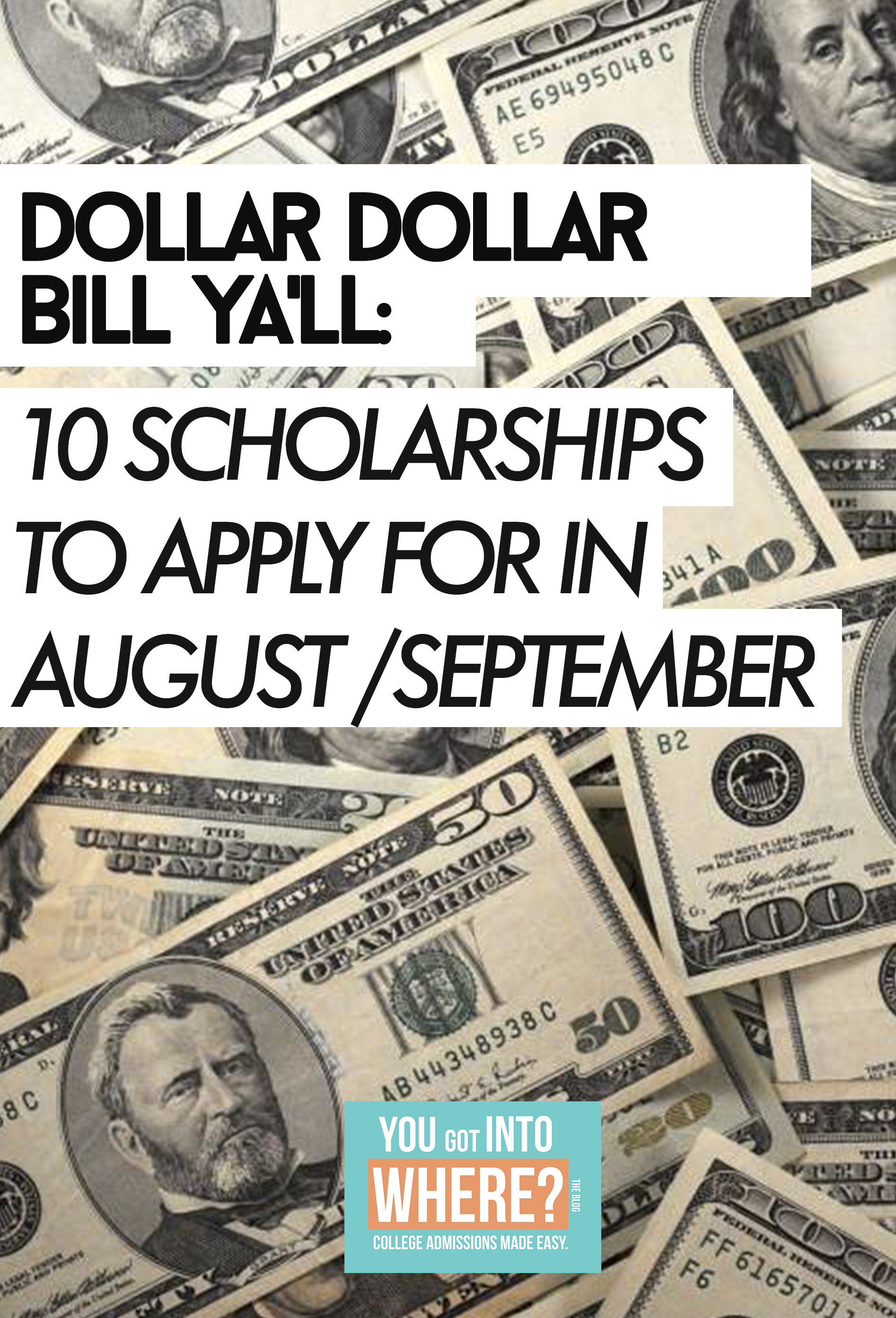“We believe, that is, you and I, that education is not an expense. We believe it is an investment.”
–Lyndon B. Johnston
-
$5,000 Young Patriots Essay Contest
Deadline: January 5th, 2017
Age/Grade: Middle and High School
The Young Patriots Essay Contest is designed to challenge middle and high school students to creatively engage with public policy and current events through the art of writing. We assign a controversial topic each year, and three winners are chosen to receive a scholarship out of hundreds of essay submissions. Find the topic and entry instructions below!
"Are international free trade agreements in the best interest of the United States? Why or why not?"
Contest participants have the opportunity to:
-Earn a college scholarship of up to $5,000
-Have your essay published on Debate Central
-See your essay posted on the National Center for Policy Analysis (NCPA) home page
-Have your essay shared with 200,000 NCPA Policy Patriots via email
-Have your winning entry be sent to your hometown newspapers, radio, and TV
Essays must be written in English and should not exceed 1,200 words. A bibliography does not count towards the word total.
-
Don’t Text and Drive Scholarship
Deadline: September 30, 2016
Age/Grade: None
Citizenship Limit: US or Legal Citizen
Do you know how far you will drive on the freeway if you take your eyes off the road for five seconds, the average time it takes to send a text? An entire football field.
According to the Virginia Tech Transportation Institute, texting while driving makes drivers 23 times more likely to get into a "safety-critical event." The purpose of this scholarship is to help you understand the risks of texting while driving. You must be a high school freshman, sophomore, junior, or senior or a current or entering college or graduate school student of any level. Home-schooled students are also eligible. There is no age limit. You must also be a U.S. citizen or legal resident.
We'll select the 10 finalists based on the content of the 140-character message. The winner will be selected based on the content and creativity of the 500- to 1,000-word essay.
-
$1,000 College JumpStart Scholarship
Deadline: October 17, 2016
Age/Grade: 10th-12th
Citizenship Limit: US or Legal Citizen
The College JumpStart Scholarship is an annual, merit-based competition that is open to 10th, 11th and 12th graders and college students and non-traditional students. The goal is to recognize students who are committed to using education to better their life and that of their family and/or community.
Applicants must be 10th, 11th or 12th grade high school, college, or adult students. Applicants may study any major and attend any college in the U.S. Applicants must be legal residents of the United States and complete the online application form including the required personal statement. The award may be used for tuition, room and board, books or any related educational expense.
-
$500 Dartmouth Undergraduate Journal of Science International Essay Competition
Deadline: October 5th, 2016
Age/Grade: High School and International Equivalent
All high school students and international equivalents are invited to submit an essay about the recent effects and future promises of science in our society. Write about particular discoveries, events, or persons from science in current events or present a more general account of the changes and developments. Each essay must be accompanied by a statement of acknowledged validity by a teacher in the field of the sciences, technology, engineering or mathematics.
Students must submit their essays and entry forms electronically on or before the contest deadline of October 8th.
Students who have family members affiliated with the Journal, or serving as contest judges are not eligible to participate.
This year's prompt: Albert Einstein once said, "To raise new questions, new possibilities, to regard old problems from a new angle, requires creative imagination and marks real advance in science." The scientific process has become increasingly interdisciplinary. Examine a modern issue in STEM being addressed from an interdisciplinary perspective and discuss the advantages and disadvantages of how these separate fields approach the issue and interact with each other. Potential topics could be found within many fields, including environmental science, engineering, and neuroscience. Note that originality is a substantial component of scoring.
- No literary form other than an essay will be accepted.
- Each essay must reflect the contestant’s own writing and original thinking.
- No graphs, images, or illustrations should be included in the essay
- The essay must be sent via e-mail to dujs@dartmouth.edu with the subject line "DUJS ISEC SUBMISSION."
- The Student Entry Form should be scanned and saved as a .pdf, .jpeg, or .png It must be attached to the email in conjunction with the essay.
- Entries must be received on or before October 5th.
-
$10,000 John F. Kennedy Profile in Courage Essay Contest
Deadline: January 4th, 2017
Age/Grade: Grades 9-12
Citizenship Limit: US Citizens only
The contest is open to United States high school students in grades nine through twelve (9-12) attending public, private, parochial, or home schools; U.S. students under the age of twenty enrolled in a high school correspondence/GED program in any of the fifty states, the District of Columbia, or the U.S. territories; and U.S. citizens attending schools overseas. Past winners and finalists are not eligible to participate. Employees of John Hancock Financial Services and members of their families are not eligible to participate.
Topic: Describe and analyze an act of political courage by a U.S. elected official that took place during or after 1956. Include an analysis of the obstacles, risks, and consequences associated with the act. The essay may concern an issue at the local, state, national, or international level.
Requirements:
-Essays can be no more than 1,000 words but must be a minimum of 700 words. Citations and bibliography are not included in the word count
-Essays must be the original work of the student.
-John F. Kennedy, Robert F. Kennedy, and Edward M. Kennedy are not eligible subjects for essays
-Essays must describe an act of political courage by a U.S. elected official that occurred during or after 1956, the publication date of Profiles in Courage. The official may have addressed an issue at the local, state, or national level
Essays about past recipients of the Profile in Courage Award will be disqualified unless they describe an act of political courage other than the act for which the award was given.
-Essays must have a minimum of five sources
-
$500 Odenza Marketing Group Scholarship
Deadline: September 30th, 2016
Age/Grade: Ages 16-25 and have at least one year of secondary school left
Citizenship Limit: US and Canada only
In order to apply for the Odenza marketing group scholarship, you must first ‘like’ our Facebook page, and write two short essays. Every essay must contain 3 essential elements.
The essay must provide a thesis statement (in the introductory paragraph). The thesis statement must encapsulate the main argument for the paper. It must be clear and coherent, and it must answer the question that has been put forth by the application.
The essay must offer supporting evidence. The writer must provide the supporting evidence in paragraph (not bullet or list) form. Each paragraph must contain evidence that supports one idea or concept that proves the thesis statement. The writer must provide citations (in footnote, endnote, or parenthetical form) for all evidence presented.
Every essay must follow basic rules of grammar and format. Every paper must contain a beginning (introductory paragraph), a middle (several supporting paragraphs that compromise the body of the paper), and an end (conclusion paragraph). Grammar is vital for essay composition. Sentence fragments, misspellings, and improper punctuation denote a carelessly-written and poorly-conceived paper.
7. $1,000 R2C Scholarship
Deadline: September 30, 2016
Age/Grade: 17+ and enrolling in college within 12 months or already enrolled
Citizenship Limit: US Citizens
Scholarship is open to U.S. citizens and legal residents who are starting a program of higher education (college or graduate school) within the next 12 months or are currently enrolled. Applicant must be 17 years of age or older and there is no maximum age limit. Applicant must share in three sentences of less why they are getting their degree.
-
$1,500 Shout It Out Scholarship
Deadline: September 30, 2016
Age/Grade 13+ and will enroll no later than 2022
Citizenship Limit: US Citizen
Scholarship is open to students 13 years of age or older who are legal residents of the 50 United States or the District of Columbia and are currently enrolled (or will enroll no later than the fall of 2022) in an accredited post-secondary institution of higher education. Applicant will need to submit a short response to a given prompt.
-
$1,000 ShipDig.com Scholarship
Deadline: September 30, 2016
Age/Grade: High school seniors and college students
Scholarship is open to high school seniors and college students enrolled in an accredited academic institution. Applicant must submit an essay on the most interesting item they have received in the mail.
-
Up to $100,000 Siemens Competition Scholarship
Deadline: September 20, 2016
Age/Grade: Grades 9-12
Competition is open to individuals and teams of up to three students in grades 9 through 12. Students are encouraged to do research in mathematics, engineering, biological, or physical science.
WANT TO LEARN MORE ABOUT COLLEGE ADMISSIONS? CHECK OUT THE YGITW BOOK HERE!
LOOKING FOR A HIGH SCHOOL OR COLLEGE INTERNSHIP? APPLY HERE!
PHOTO CREDITS:
http://www.mynextcollege.com/images

















